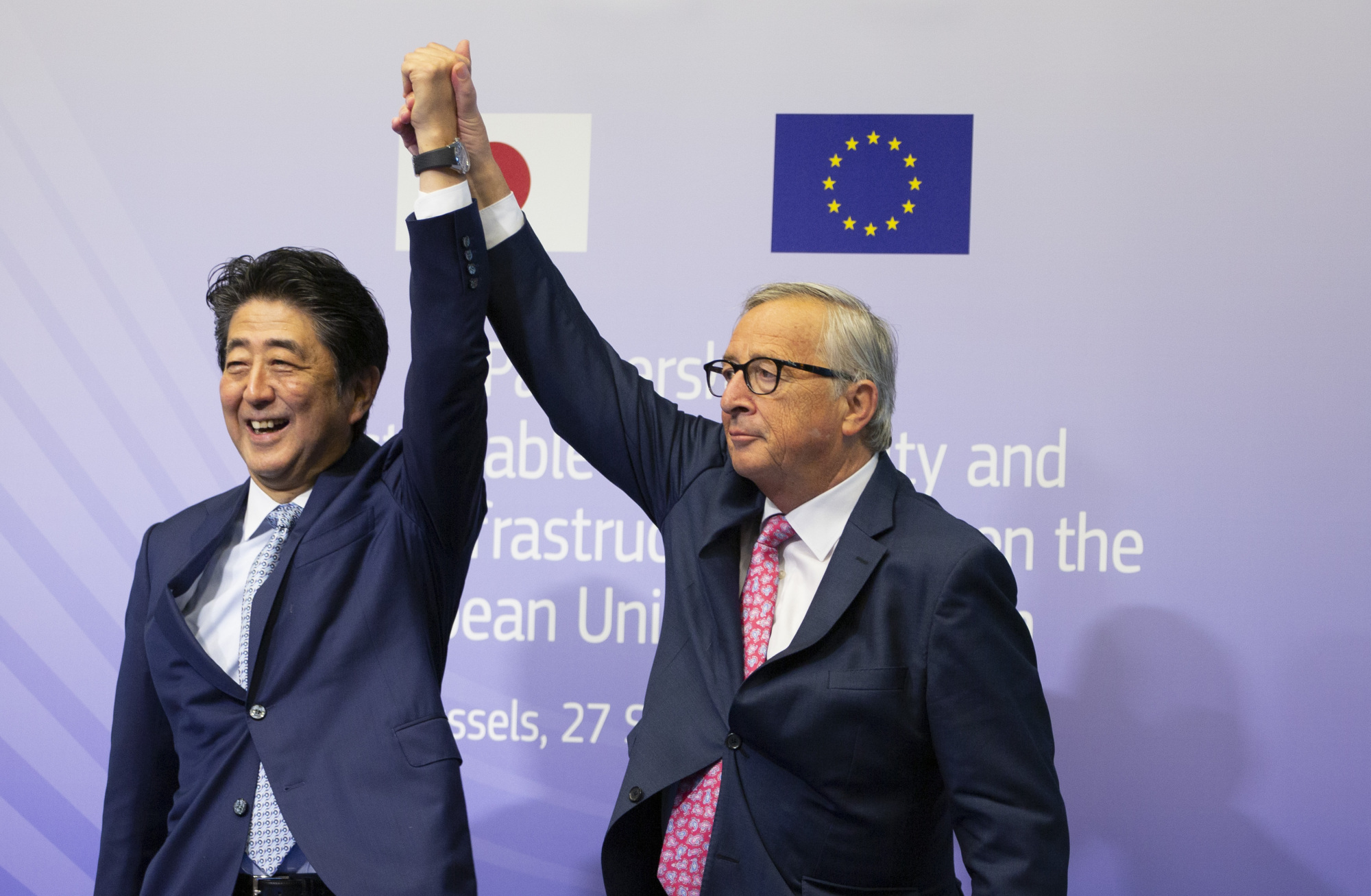Connectivity, the Belt and Road initiative, regional cooperation and infrastructure. Such were the fundamental talking points during the EU-Asia Connectivity Forum at the Charlemagne building of the European Commission, organized by the European Political Strategy Center. But what of the outcomes? What were the conclusions of the discussions?
On Sept. 27, the European Commission convened a large-scale conference about connectivity strategies between Asia and the European continent. I had the pleasure to attend as a member of the audience; therefore, I was lucky enough to witness Prime Minister Shinzo Abe and European Commission President Jean-Claude Juncker sign a partnership agreement between the country of Japan and the European Union. The agreement is quite important in itself but, before shaking hands on the document, Abe delivered an interesting keynote speech as well.
In his speech, the prime minister pointed to the already existing agreements between the two actors, namely the economic partnership agreement (EPA) of 2017 and the strategic partnership agreement (SPA) of 2018. Both of these documents certainly signal a strong commitment toward partnering up, which should not be disregarded, especially when considering the ongoing troubles with South Korean-Japanese economic ties that unfolded this summer.


















With your current subscription plan you can comment on stories. However, before writing your first comment, please create a display name in the Profile section of your subscriber account page.